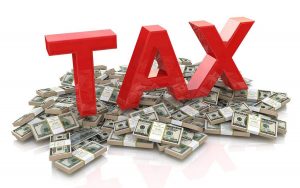2017 NJ Tax Changes Business Owners Need to Know

In my last post I reported on key federal tax changes that small business owners need to know about. This post covers three significant tax changes in New Jersey.
NJ sales tax rates reduced
The New Jersey Sales and Use Tax will be reduced in two phases between 2017 and 2018. The rate decreased from 7% to 6.875% on and after January 1, 2017. The tax rate will decrease to 6.625% on and after January 1, 2018.
Transition rules do apply:
- For items sold before 1/1/2017 but delivered after 1/1/2017, use the 6.875% rate
- Leases in excess of 6 months entered into before 1/1/2017, use 7%.
- Lease extensions or renewals after 1/1/2017, use 6.875%.
- If an agreement is less than 6 months – use 6.875% for all periods that begin after 1/1/2017.
- Construction materials delivered after 1/1/2017, use 6.875%.
- If the construction materials are for use in unalterable building contracts entered into before 1/1/2017, the seller must collect 7%.
- Service or maintenance agreements entered into before 12/31/2016, seller must charge 7%. This is regardless of whether or not the agreement covers periods after 1/1/2017, unless the bill for such services was issued after 1/1/2017.
KRS Tip: Check all your vendor invoices to ensure you’re being charged the correct amount, before you pay the invoice. If it is the incorrect amount, have the vendor revise the invoice. If you go ahead and pay the incorrect amount, it is your responsibility to go back to the state – not the vendor – to get a refund.
Urban Enterprise Zone designation expires for 5 NJ cities
Under the UEZ designation, businesses in certain economically distressed areas are eligible for incentives, including tax free purchases on capital investments, tax credits to hire local workers and the ability to charge just half the statewide 7% sales tax.
The UEZ designations for Bridgeton, Camden, Newark, Plainfield and Trenton were permitted to expire. These zones can no longer collect sales taxes at reduced rates.
Changes to New Jersey estate tax
A NJ resident who dies and has assets worth more than $675,000 has had his or her estate subject to NJ estate tax. That may sound like a lot of money, but if you own even a modest home in the northern part of the state, you’ll probably hit the $675,000 threshold.
As part of the bill that raised the gas tax in the state, the exemption will increase from $675,000 to $2 million for estates of residents dying on or after 1/1/2017 and before 1/1/2018.
We expect that the increased exemption will change if there is a democratic governor elected this year.
We’ve got your back
New Jersey tax regs grow increasingly complex and it can be hard for business owners to know how to save taxes. At KRS we assist our clients in minimizing tax liabilities by providing them with comprehensive tax planning, preparation and compliance services.
Contact partner Maria Rollins at 201.655.7411 or mrollins@krscpas.com if your company needs expert advice and assistance with its 2016 taxes.



